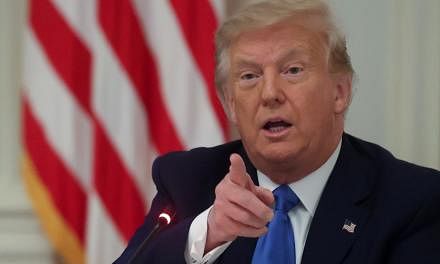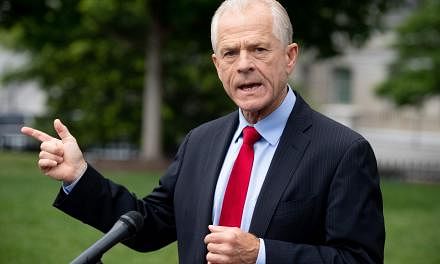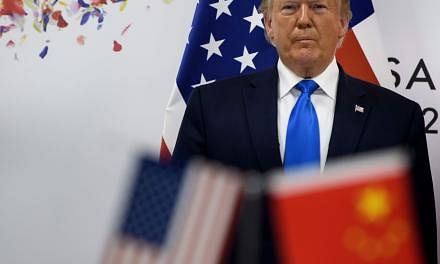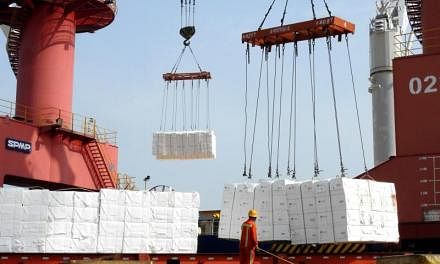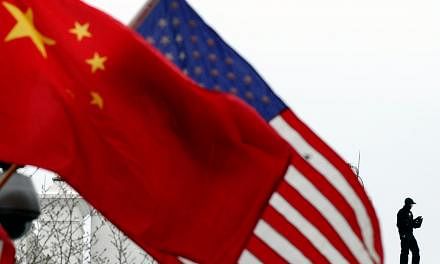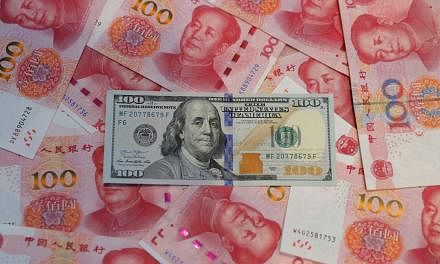BEIJING • Even as the US and China near a deal on trade, the Trump administration is becoming increasingly assertive in challenging Beijing on its geopolitical red lines.
Since Sunday alone, the United States has sailed a warship through the Taiwan Strait, released a report criticising travel restrictions in Tibet and hosted Uighur exiles at the State Department.
The moves - all of them defying China's warnings against meddling in what it views as its internal affairs - came ahead of the arrival in Beijing of Treasury Secretary Steven Mnuchin and Trade Representative Robert Lighthizer for trade talks.
All three visits by US trade teams since President Donald Trump and his Chinese counterpart Xi Jinping declared their Dec 1 tariff truce have been presaged by US naval patrols through territory claimed by Beijing. While it is unclear whether the operations were intended as a signal during talks, the administration appears willing to test the Communist Party's bottom line while seeking commercial concessions.
The moves underscore a growing strategic rivalry that many observers expect will outlast any China-US trade deal.
Trump administration officials have given tacit approval to Taiwan's request for its first purchase of new fighter jets in almost 30 years, people familiar with the matter said last week, and the US has also been pressing allies to stop using telecommunications equipment made by Chinese firms such as Huawei Technologies over spying risks.
So far, the Chinese side has kept its policy of "strategic composure" towards Mr Trump, protesting against each move without linking the security disputes to trade talks.
Dr Wang Dong, secretary-general of the Pangoal Institution, a Beijing-based research group, said the American moves evoked the "gunboat diplomacy" of the 19th century, when the US and other Western powers used their naval might to force open Asian markets.
"Even if their intention is to use this as a way to send some sort of signal to China, I think it is a very dumb one," said Dr Wang, who is also an international relations professor at Peking University.
Keeping such frictions from interfering with trade talks could become more difficult as negotiations drag on and the US pushes harder on sensitive fronts. Mr Xi can only tolerate so much as he tries to protect his image as a strong leader capable of completing China's return to global influence after a "century of humiliation" at the hands of imperial powers.
"The US seems to be more willing to play the Taiwan card in a rather radical way," the nationalistic Global Times said in a March 6 editorial. "But such action is risky and will meet with retaliation from Beijing if it goes too far, which will in turn harm US interests."
BLOOMBERG

